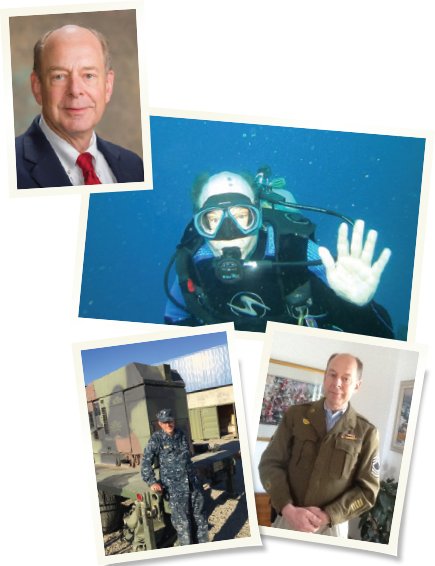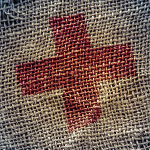In 2010, Thomas Bartow, MD, FACP, finally ran out of excuses.
Ever since high school, he had wanted to join the military. But too many things got in the way—like attending medical school at State University of New York at Stony Brook.
After graduation in 1980, he performed his residency in internal medicine at Rush-Presbyterian-St. Luke’s Medical Center in Chicago from 1980–83. He served on the school’s faculty as an internist for the next two years and completed his rheumatology fellowship at Johns Hopkins School of Medicine, Baltimore, between 1985 and 1990. Then he moved to Wisconsin to join the Marshfield Clinic as a rheumatologist, where he has remained ever since.
While pursuing his medical education and career, he married Rebecca, an ophthalmologist, and together, they raised five children. When his kids grew older and moved out on their own, his excuses came to an abrupt halt. His desire to join the military was as strong as ever. So in 2010, when he was 55 years old, Dr. Bartow joined the U.S. Navy Reserve as a Lieutenant Commander and has since been promoted to the rank of Commander.
Dr. Bartow says his experiences in military medicine have been rewarding and “amazingly fun.” More importantly, he says, volunteering has allowed him to fulfill a lifelong passion of serving his country.
“Usually, the military doesn’t take people [older than] 42,” says Dr. Bartow. “They don’t want old geezers; however, they make an exception for doctors, because they’re hard to get.”
Two-Way Street

Dr. Bartow enjoys diving in his spare time, particularly in warm locations.
Commander Bartow with his “favorite generator” in Dublin, Calif., in July 2017.
Commander Bartow plans to continue to apply for an age waiver.
For nearly eight years, Dr. Bartow has spent one weekend each month training with other doctors, corpsmen and allied health staff at the Great Lakes Naval Station in Chicago, a five-hour drive from his home. Another two weeks each year is spent on active duty at Naval bases around the country.
He explains that the Navy provides medical and chaplain support to the U.S. Marine Corps, which is part of the Department of the Navy, although no Marine likes to admit it. Most of his assignments between 2011 and 2016 involved working with a Marine Corps unit based at Great Lakes, and the remainder was with the Navy at the same base.


